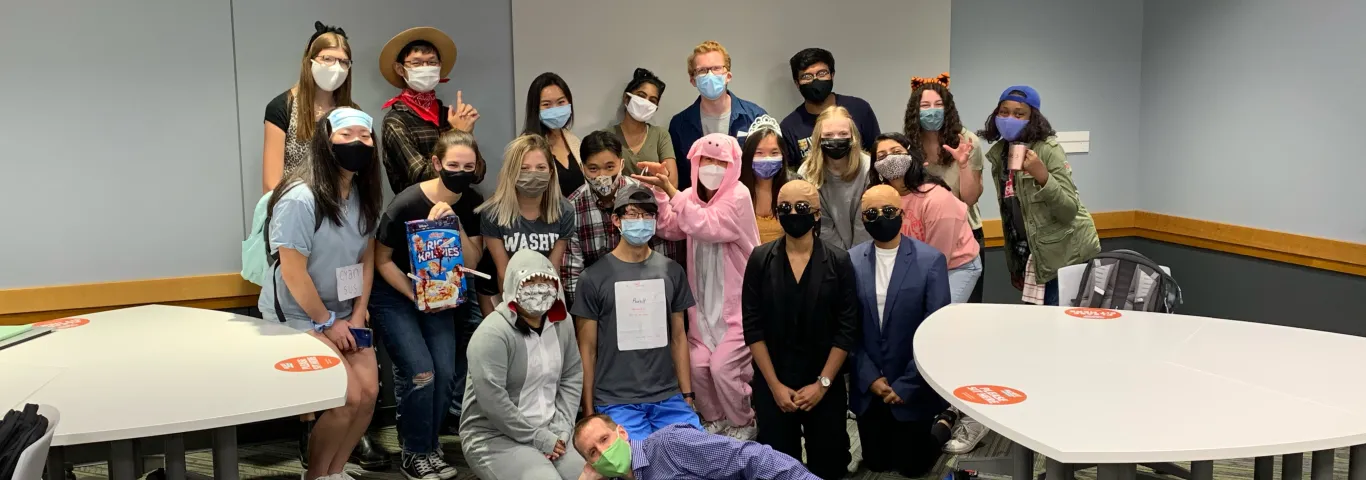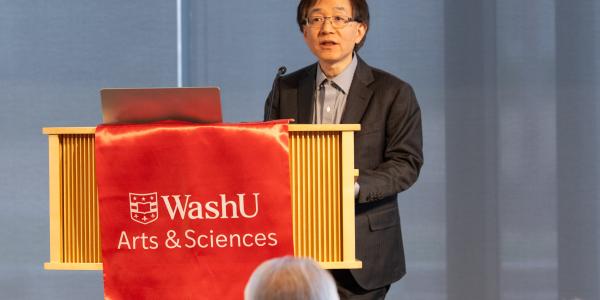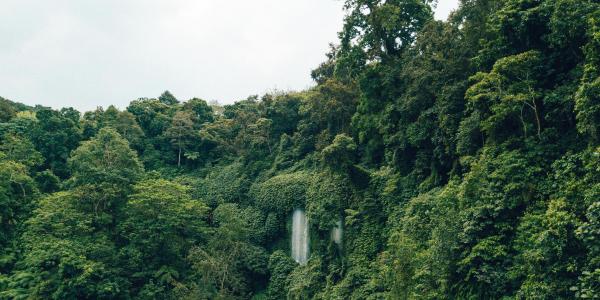Tony Smith’s passion for science and biology was ignited at a young age by a love of sharks.

Tony Smith watched and read as much about sharks as possible. In high school, he had an influential biology teacher that helped solidify his passion for biology and life. When he started his undergrad here at WashU, he soon realized his passion for sharks would serve more as a hobby, and he shifted his professional interest to medicine. He was inspired by a number of people in the biology department, including Allan Larson, Bob Kranz, and Ian Duncan, all of whom had a big impact on his life and growing interest in the biological sciences.
He did the pre-med track at Wash U and completed independent research in Bob Kranz’s lab. Two of his favorite undergrad classes, Microbiology and Immunology, ignited his passion for infectious disease and how the body defends itself from invading microbes. He shifted his professional path and applied to graduate research programs instead of med school. He matriculated to University of Miami School of Medicine in Florida, where he got his PhD in microbiology and immunology. His dissertation was on better understanding and treating drug resistance in HIV-infected people. Having the beach and ocean nearby was an added bonus because he still loves sharks!
Tony moved to the University of MN Medical School in Minneapolis for his postdoctoral training, investigating traits of an effective HIV vaccine. During that time, he got some teaching experience and realized that he loves interacting with students and making a difference in younger people's lives. He transitioned away from research to use his experience in the classroom setting. He taught in two medical schools and eventually made his way back to St. Louis. He landed a position as an Assistant Dean in the College of Arts & Sciences at WashU to help advise students and eventually teach undergrads.
“I get to work with students every day, helping them carve out their path here in college. I get excited when they get excited, and I get to share some of my experiences. I felt like my calling was best served in the classroom and in this relationship building mode that I have as a dean, advisor and classroom instructor. I hope I can impact and provide a little bit of guiding light for their future trajectory,” Tony said.
When Tony started, there were no cancer courses in the day school. While his background is in microbiology, immunology and infectious disease, a harrowing family experience with his younger brother’s battle with cancer made him realize that he wanted to fill this niche as a teacher. He proposed a new Ampersand program, in partnership with Biology and the College of Arts & Sciences, which combines multiple semesters for students to undertake a holistic learning experience about this disease that has touched so many. The program encompasses the biology behind cancer, the current research and future trends in treatment and diagnosis, and the professional/clinical side, where students get to interface with the various healthcare professionals that are involved in treating individuals with cancer.

The first semester, titled the “Bio 1440: Biology of Cancer,” gives students an overview of how a normal cell becomes cancer, primarily from the cell/molecular biology and genetics perspective. The second semester, “Bio 1441: Frontiers in Cancer Research and Treatment,” centers on both basic science and clinical research. Students themselves drive the second semester by exploring the scientific literature and preparing presentations. The class gets to hear about all the new cutting edge things going on in the world of cancer. The third semester, “Bio 244: The Oncology Healthcare Team,” features healthcare professionals who talk to the class about what they do and how they got there. Students will also go on various field trips to Siteman Cancer Center and other clinical locations to learn more about behind-the-scenes work with cancer. For example, they will go to a clinical genetics lab to better understand how genetic analyses, such as karyotypes, are used to help people better understand their genetic backdrop and how certain mutations might increase their risk for developing cancer.
“One exciting thing the class will do in the final semester is partner with Siteman Cancer Center’s Survivorship program, which brings together cancer survivors and volunteers for group activities to improve quality of life. As a class, we're going to facilitate a number of these activities, such as arts and crafts, to provide a glimpse into the patient experience. My goal behind starting this multi-semester program was to show students the various facets of life with this disease. It's not just biology, cells and genes. It's people, from the survivors who have successfully battled this disease to all of these other amazing individuals who work in concert to improve the lives of others, from researchers to the amazing clinical professions that have very important touch points with patients that are going through this very challenging time in their lives with a cancer diagnosis.

“A lot of students come in thinking that being a medical doctor is the only way to make a meaningful, impactful difference in somebody's life in that space. That's far from true. Many other professions have as meaningful, if not even more meaningful, an impact on people's lives that are dealing with a disease or a diagnosis like this. We have clinical geneticists, psychologists, nurses, dieticians, and different types of physicians (pathologists, medical oncologists, radiation oncologists, surgeons) that we're going to bring in, and each of these professionals has a major role in the healthcare team that will address and help individuals dealing with this disease,” Tony explained.
In his free time, Tony loves playing and watching sports, anime, hiking with his family, and, of course, staying up to date on sharks.





